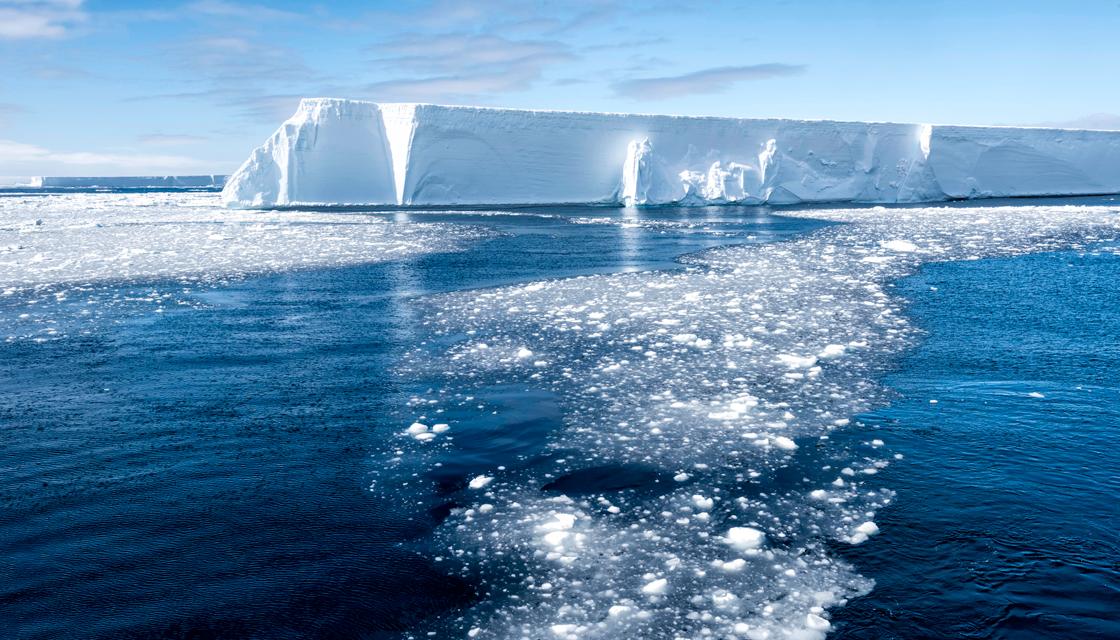A massive iceberg snapping off an Antarctic ice shelf has piqued the interest of those across both New Zealand and the world.
The trillion-tonne iceberg, around 5800 square kilometres, broke off the Larsen C ice shelf on the continent's most northern point of the Antarctic Peninsula.
Newshub spoke to glaciologist Professor Christina Hulbe, an Antarctic researcher and Dean of Surveying at the University of Otago, to clear up some of the resultant rumours.
Will Kiwis see the fragments floating past?
"Sadly, no... big disappointment!" Prof Hulbe said.
Some will remember in 2006, when several large icebergs floated past Dunedin. They also broke off from an Antarctic ice shelf, but were a lot smaller than the one coming from Larsen C.
But this iceberg is in the Weddell Sea, on the Atlantic side of the ocean. It's possible chunks could get swept around by currents and onto our side - but we won't see it here.
"If it actually makes it out of the Weddell Sea, it'll be heading towards the Falkland Islands," she said.
"It could take a long time for that to happen too... We'll have to wait and see."

Where will they go, then?
"It'll start to move north, being carried by that circulation," Prof Hulbe said.
It'll break up into smaller pieces - but some could run aground in shallow areas of the ocean. In 2000, one iceberg which snapped off from the Ross ice shelf ended up blocking Ross Island.
"It caused troubles - penguins couldn't get out to sea, the sea ice never went out so it was hard for shipping getting resupplies into Scott Base and McMurdo.
"That could happen over there too - we'll just have to wait and see."
Will it affect our weather at all?
Kiwis can rest easy - it won't make for a chilly dip in the sea as it starts melting.
While its size may seem impressive, it's still only a drop in the bucket when it comes to global waters.
"It's not that big! The kinds of things we worry about for ocean circulation really has more to do with melting [rather than icebergs]," Prof Hulbe said.
"This iceberg won't have that kind of effect, we need more water."

Did the recent earthquake make it break off?
On Tuesday evening, a magnitude 6.4 earthquake south of Stewart Island set Southlanders rattling. Some have asked Newshub if that was what made the berg finally split.
"The answer is no. However, ocean waves - long distance ocean waves, like from storms in the Northern Hemisphere - can affect what happens on ice shelves," Prof Hulbe said.
Because the ice shelves rest on the water, waves in the ocean can cause it to vibrate "like a drum", which can affect the crack, she said.
"The earthquake won't have that kind of effect on the ocean."
Is it linked to the record-low sea ice extent this year?
"No - they're different types of events that happen on really different time scales," Prof Hulbe said.
"The sea ice is an annual thing, it comes and goes every year. This iceberg, this rift, has been propagating for a decade."
Did it crack because of climate change?
"There are three kinds of iceberg calvings we see - there are small icebergs that calve off the front fairly frequently, big icebergs like this one calve off infrequently, and then there are unusual events like the whole disintegration of ice shelves," Prof Hulbe said.
She said those are the ones that are driven by climate - like Larsen B. Over around 50 years, it began warming up and meltwater settled on the surface in ponds of liquid.
It was then not just filled existing cracks, but created new ones. The water became like a hammer, and it shattered into pieces.
"That's the kind of thing we expect with global warming."

So what caused it to finally break?
"Something has to tip it over the edge," Prof Hulbe said. At the moment, they just don't know what.
"I would imagine that people are looking into [ocean events] right now, and if there's any kind of event in the global ocean which could have played that kind of role, we'll know about it."
The great thing about the Larsen C iceberg breaking off is that it was so closely monitored over the years, Prof Hulbe said.
"Antarctica's a dynamic place, I think is the big message. You think of it as remote and frozen and slow with penguins on the edge, but there's always a lot going on," she said.
"Almost always today, when we see something unfold, we think, 'That happened faster than I thought it would'.
"It's partly global warming, but it's still a big frontier. There's always so much to learn."
Myths and mysticism shows Kiwis care
Prof Hulbe said it's fantastic to see how involved New Zealanders have been getting when it comes to Antarctica and its science, particularly considering how close we are to the great white continent.
"It's really great - people feel connected to the place, they know something about the Ross Dependency, they know about [Sir Edmund] Hillary having been on expeditions there, and they get it," she said.
"We're connected to that place. I think it's really neat."
Newshub.

